World Geography And Politics Daily News | 21 Jun 2023

Views (123)
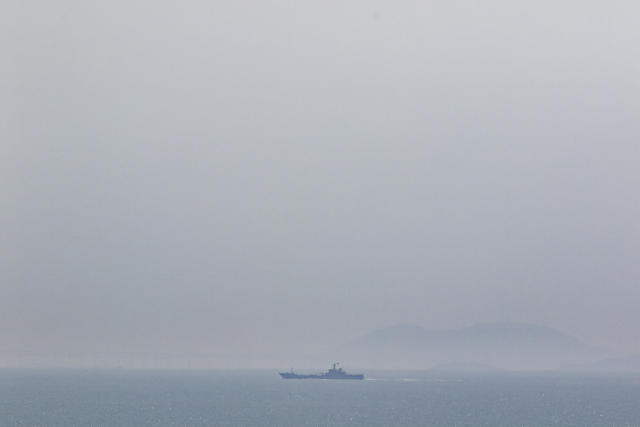
World well short of pace needed to meet UN's 2030 sustainable development goals
The world is falling well short of the progress needed to meet the United Nations' sustainable development goals by 2030 in areas ranging from poverty to clean energy to biodiversity, with a growing gap between wealthy and developing nations, according to a report Tuesday from the nonprofit tracking the goals. The coronavirus pandemic stalled the limited progress made in the years after United Nations member states adopted the goals in 2015. “We're at the risk of a lost decade for sustainable de
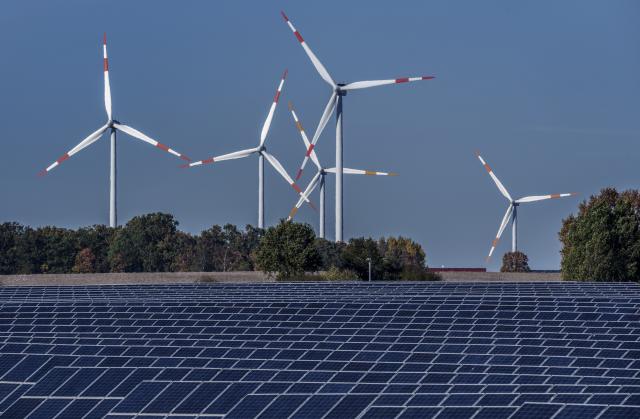
The world is falling well short of the progress needed to meet the United Nations' sustainable development goals by 2030 in areas ranging from poverty to clean energy to biodiversity, with a growing gap between wealthy and developing nations, according to a report Tuesday from the nonprofit tracking the goals.
“We're at the risk of a lost decade for sustainable development,” said Guillaume Lafortune, a lead author of the report and vice president and head of the Paris office of the Sustainable Development Solutions Network, the nonprofit launched by the UN to foster and track sustainable development. “And there’s actually a risk that the gap between rich and poor countries on sustainable development might be bigger in 2030 than it was in 2015.”
The authors noted that goals for reducing hunger, improving health and protecting biodiversity are particularly off-track. They said changing global governance mechanisms and global finance architecture are critical for improving progress on all the goals.
The report analyzed countries' progress on the sustainability goals by assigning them scores from zero to 100. They examined factors like poverty, hunger, disease, carbon dioxide emissions, subjective well-being scores and dozens of other indicators. Finland, Sweden, Denmark, Germany and Austria ranked highest. South Sudan ranked lowest, followed by the Central African Republic, Chad, Yemen and Somalia.
Lafortune called particular attention to the “disappointing” United States scorecard, which he said was below average for developed countries. He said the U.S. was one of the worst performers in terms of its commitment efforts and was one of only five member countries that did not present action plans and priorities to the international community. But Lafortune did note that some U.S. cities voluntarily provided local reviews.
Kimberly Marion Suiseeya, an associate professor of political science and environmental policy and culture at Northwestern University who did not work on the report, said that while she sees pressing global development shortfalls on issues like the climate emergency, she thinks the Biden administration is taking climate seriously. She also saw signs of optimism in China's progress on renewable energy. Though the country ranked below the U.S. in the report, it has invested more in clean energy, according to research firm BloombergNEF.
Anita Ramasastry, a law professor and director of the Sustainable International Development graduate program at the University of Washington, said she wasn't surprised that the sustainable development goals are off track. Ramasastry, who had no part in the report, said she doesn’t think many governments with more advanced economies, like the U.S., have embraced the goals or made them relevant to citizens’ daily lives.
She questioned whether the goals were overly ambitious and added that it will be important to examine how the 2030 agenda is financed, as well as the role of the private sector.
“Business has been asked to fill a role. And I think there’s just an ultimate question, which is should we have asked business to fill that role?” she asked. “Because ultimately the SDGs are meant to be about governments and states.”
The report made the same point repeatedly, singling out several “basic failures” in global governance. Those included voluntary implementation of the goals with no enforcement mechanisms when countries fall short, international trade and finance rules not geared to sustainability, and national governments not coordinating well with smaller units of government on the goals.
Lafortune called for countries to keep the sustainable development goals in mind as they approach the Paris summit and other global conferences. He said Paris has the opportunity to act as an “accelerator” toward reforming international institutions like the International Monetary Fund and the World Bank, which he sees as possible elements of a global strategy for investment in tackling climate change and other sustainable development goals.
“Despite all the fragmentation right now in geopolitics, the many crises and so on, we still need to keep that sort of long-term vision and this idea of multilateralism and global cooperation alive. I think this is absolutely crucial,” Lafortune said. “I don’t think the world will be better off if we just forget about these goals because we won’t achieve them.”
__
__
Labour willing to bend UK to EU rules in return for Brexit food deal
Labour is willing to sign Britain up to following EU rules in return for a deal that would reduce post-Brexit checks on food, David Lammy has suggested.
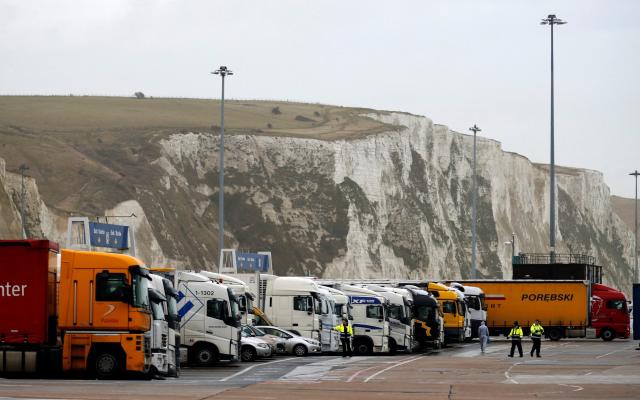
“It’s mistaken to think that after such a messy divorce, it is possible to propose marriage again, even before two ex-partners have gone on a date.”
He said that Labour would go through the Brexit trade deal “page by page, seeking ways to remove barriers and improve opportunities for business”.
He was also asked about the party’s plans for a veterinary agreement, which it has pledged to prioritise to reduce checks for food producers.
The Government has twice asked for a deal like the one New Zealand has with the bloc, that would see the UK and EU voluntarily acknowledge each other’s standards as equal.
Pressed on whether Labour would ultimately end up accepting the EU’s demands, Mr Lammy replied: “It seems to me that if New Zealand and Switzerland can broker such deals, we can as well.
“We’re not naive that any negotiation involves trade-offs and discussions. But we do think, on a whole range of areas, it’s not our desire in the Labour Party to reduce standards and therefore a veterinary deal is something that we can achieve.”
Mr Lammy said that rising interest rates and inflation, plus a post-Brexit drop in exports, meant that the public was on board with the need for change.
“When I say that it is our number one priority to fix our relationship with the European Union, I think the British people support that,” he said.
“I think people in the UK recognise because they’re feeling it in their pocket, that we do need to have a total shift and a reset within our relationships.”
‘Real’ danger of Vladimir Putin using nuclear weapons, warns Joe Biden
The threat of Vladimir Putin using tactical nuclear weapons is “real”, Joe Biden has said, days after denouncing the Kremlin’s deployment of such devices in Belarus.
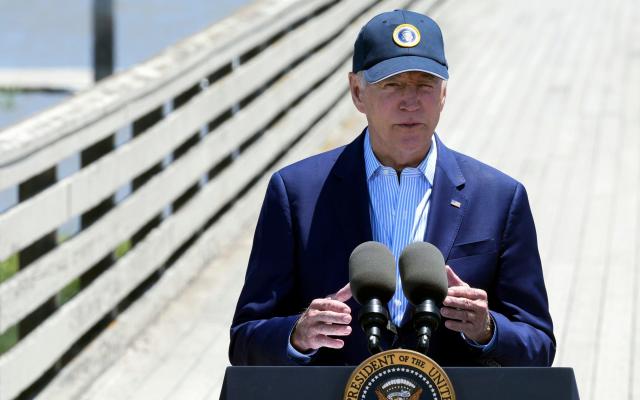
On Saturday, the US president called his Russian counterpart’s announcement that Moscow had deployed its first tactical nuclear weapons to Belarus “absolutely irresponsible”.
“When I was out here about two years ago saying I worried about the Colorado river drying up, everybody looked at me like I was crazy,” Mr Biden told a group of donors in California on Monday.
The deployment is Russia’s first move of such warheads – shorter-range, less powerful nuclear weapons that could be used on the battlefield – outside Russia since the fall of the Soviet Union.
Uganda school massacre: Arrests raise murky questions
Officials investigate if a local ownership dispute had a role in the killing of nearly 40 students.
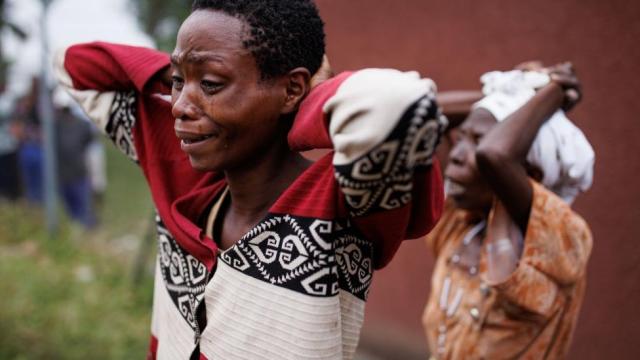
More than 20 people arrested in Uganda in connection with Friday's school massacre have been accused of collaborating with the rebel group blamed for carrying out the killings.
Among those held are the director and headteacher, who have not commented.
Officials say there may have been a dispute over the ownership of the school where the 42 people died.
The army say Islamic State-linked militants were behind the attack, but other motives are being investigated.
They belong to the Allied Democratic Forces (ADF), a group created in the 1990s and took up arms against President Yoweri Museveni, alleging persecution of Muslims. It is now largely based in neighbouring Democratic Republic of Congo.
The arrests raise difficult questions about whether locals, and those responsible for the children, had a hand in what happened.
But there is very little clarity.
Thirty-seven pupils were among those killed, when, late on Friday, attackers stormed Lhubiriha Secondary School in the small town of Mpondwe, close to the border with DR Congo.
The victims, many of them staying in dormitories, were burnt or hacked to death, and some were reportedly shot.
Eight people were also abducted. On Tuesday, the authorities said that three - one woman and two boys - had been rescued by the army as they targeted the assailants, killing two of them.
In the immediate aftermath of the attack, army commander Maj Gen Dick Olum said the violence was a way for the ADF to distract his soldiers from their pursuit of the militants inside DR Congo.
A neighbour told the BBC she heard one of the attackers shouting "Allahu Akbar", meaning "God is greatest", and saying: "We have succeeded in destabilising Museveni's country."
According to military intelligence, it is suspected that five ADF militants took part in the attack.
The ADF, which is now linked to the IS group, has not yet said it was behind the attack though it has carried out attacks in Uganda in the past.
While blaming "the terrorists of ADF" for what happened, President Museveni has also talked, without elaborating, about "wrangles" over the school.
First Lady Janet Museveni, who also serves as education minister, said there had been a "conflict" between "groups in [the district of] Kasese who wanted to take it over" and the non-governmental organisation (NGO) that built it.
She pointed out that auditors from the NGO had been at the school the day before the attack, but said on Saturday that a proper investigation was under way.
Ugandan army spokesperson Brig Gen Felix Kulayigye has told the BBC's Newsday programme that along with school officials, two people accused of guiding the attackers "to avoid detection" in Mpondwe have also been detained.
Ukraine-Russia war: Ukraine 'planning Storm Shadow attack on Crimea'
Ukraine is reportedly planning to attack occupied Crimea with Himars and British Storm Shadow missile, Russia has claimed in a warning to Kyiv and the West. Sergei Shoigu, the Russian defence minister, said that Russia would retaliate if Ukraine started hitting the territory that Vladimir Putin annexed in 2014

Ukraine is reportedly planning to attack occupied Crimea with Himars and British Storm Shadow missile, Russia has claimed in a warning to Kyiv and the West.Sergei Shoigu, the Russian defence minister, said that Russia would retaliate if Ukraine started hitting the territory that Vladimir Putin annexed in 2014
“The use of these missiles outside the zone of our special military operation would mean that the United States and Britain would be fully dragged into the conflict and would entail immediate strikes on decision-making centres in Ukraine,” warned Mr Shoigu.
Crimea may become within target of Ukraine’s arsenal of missiles and artillery as its counter offensive pushes further south. Ukraine says it has recaptured 113 square km (44 square miles) of land from Russian forces.Last week, Russian sources said that more than a hundred Russian soldiers may have been killed by a Ukrainian Himars strike after they were ordered to wait in large numbers to listen to a general’s speech.
Thanks for reading today’s liveblog.
We will be back tomorrow with all the latest updates on Ukraine.
Ukraine said that one rescue worker and several others were injured by Russian forces in the southern city of Kherson, which was recently flooded after the breach of a major dam nearby.
“One employee of the State Emergency Service dead, another eight were injured in Kherson,” Ukrainian interior minister Igor Klymenko said on social media, adding that the team was involved in clean up efforts in the wake of the flood.
US Secretary of State Antony Blinken said he would set out a new assistance package for Ukraine on Wednesday at a conference aimed at encouraging private companies to invest in the country’s reconstruction after Russia’s invasion.
Kyiv and London will host the Ukraine recovery conference in London on Wednesday and Thursday, when more than 1,000 foreign officials from over 60 states along with business chiefs and global investors will discuss ways to help the country rebuild.
“President Biden said ... that we would stand with Ukraine for as long as it takes, and both of our countries are deeply committed to that,” Mr Blinken told a press conference alongside British foreign minister James Cleverly.
“We will continue to deliver on that commitment, including through a new robust US assistance package that I’ll be able to announce tomorrow.”
A “significant” ammunition dump in Russian-occupied Rykove has been destroyed, new satellite imagery shows.
Pictures show widespread destruction of an alleged supply depot in Rykove, 125 miles southeast of the city of Kherson, near the port town of Henichesk.
“This was a very significant ammunition depot. It has been destroyed,” said Odesa’s military administration.
Rykove, located on the railroad between Crimea and Melitopol, is an important logistical hub for Russians in the occupied part of Kherson region.
In the southern Kherson region on Tuesday, Ukrainian forces reportedly struck the Russian-controlled town of Nova Kakhovka with drones,local Russian-appointed authorities said.
On Monday, Rishi Sunak, the Prime Minister, said that the Ukrainian counter offensive was making “good progress”.
Even by the standards of a Protestant preacher, Pastor Ihor Yershov’s services are austere affairs. He wears a t-shirt and flak jacket rather than collar and cassock, and his “church” constitutes whichever building still happens to be standing in the bomb-ravaged Donbas villages where his flock continue to dwell.
Yet for residents of hamlets like Maximilianivka, close to the front lines of Ukraine’s ongoing counter-offensive, his pop-up preaching sessions in homes and basements are their only chance to hear the word of God.
“Maximilianivka is about 70 per cent destroyed and the people that are still there are living in terrible conditions,” Mr Yershov told The Telegraph from his base in nearby Kurakhove, as distant explosions sounded from the fighting outside the nearby separatist-held city of Donetsk.
A Russian soldier who destroyed a German-made Leopard tank in a battle in Ukraine has been given a 1 million rouble ($11,842) reward by a private foundation, Russia’s defence ministry said on Tuesday.
It published a video showing the soldier, Andrei Kravtsov, sitting on a hospital bed and receiving a reward certificate from Alexander Karelin, a three-time Olympic champion in Greco-Roman wrestling.
The ministry did not say when and where Kravtsov had destroyed the tank or what he was being treated for in hospital. In the video, he appeared to be missing his right hand.
Russia says its forces have destroyed a number of German-made Leopards and U.S.-supplied Bradley fighting vehicles since Ukraine launched a counteroffensive earlier this month. Reuters could not independently verify the numbers involved.
The defence ministry last week said it had paid individual bonuses.
German Chancellor Olaf Scholz said he had called on China to use its influence over Russia more in regards to the war in Ukraine.
Speaking alongside China’s Premier Li Qiang after bilateral talks in the German capital, Mr Scholz also said China should not supply weapons to Russia and that the war in Ukraine should not become a frozen conflict.
This is the Chinese Premier’s first foreign trip since taking office in March.
The meeting in Berlin is the seventh time Germany and China have held high-level government consultations and comes a day after Chinese President Xi Jinping met with US Secretary of State Antony Blinken, indicating an effort by Beijing to reach out to the West and improve frosty relations.
Germany is keen to maintain good ties with China, its biggest trading partner, despite wariness over Beijing’s growing assertiveness and refusal to criticize the Russian invasion of Ukraine. Germany’s recently published national security strategy describes China as “a partner, competitor and systemic rival.”
The European Union’s chief executive, Ursula von der Leyen, on Tuesday unveiled an aid package for Ukraine worth 50 billion euros.
The figure comes after a review of the bloc’s 2021-27 budget and ahead of an international conference in London this week aimed at raising more funds to rebuild Ukraine from its war with Russia.
The 50-billion-euro budget reserve will provide perspective and reliability to the blocs Ukrainian partners, von der Leyen said in remarks to journalists after an EU commission meeting in Brussels.
Russian Defence Minister Sergei Shoigu claimed that Ukraine was planning to attack Moscow-controlled Crimea with HIMARS long-range artillery systems and Storm Shadow missiles, and warned that Russia would retaliate, TASS reported.
Such strikes, which Russia considers to be outside the area of what it calls its “special military operation” in Ukraine, would also mean full-scale involvement of the United States and Britain in the conflict, TASS quoted Shoigu as saying.
Yevgeny Prigozhin has complained that most of his fighters had not yet received medals promised by President Vladimir Putin for their role in the Ukraine war’s bloodiest battle, the latest twist in a feud with the top brass.
Prigozhin’s Wagner private army spearheaded the assault on the eastern city of Bakhmut, captured last month by Russian forces after nine months of fighting.
Putin congratulated Wagner and the Russian army at the time and said that all those who distinguished themselves would get state awards.
But Prigozhin, who has publicly accused the Defence Ministry and its leadership of incompetence and of failing to adequately supply his forces, said most of his men had not been decorated.
“Of the state awards for Bakhmut, only Hero of Russia stars have been received. Nothing has been awarded to the fighters, the bulk of the fighters. The lists are with the Ministry of Defence,” he said in a statement released by his press office.
“According to my information, there is a fuss over signing off on the awards. Everybody has already forgotten that they fought and died there,” Prigozhin added, accusing generals of instead “adorning themselves with trinkets”.
There was no immediate reaction to his criticism from the Defence Ministry which has ignored his public complaints.
The threat of Vladimir Putin using tactical nuclear weapons is “real”, Joe Biden has said, days after denouncing Russia’s deployment of such weapons in Belarus.
“When I was out here about two years ago saying I worried about the Colorado river drying up, everybody looked at me like I was crazy,” the US President told a group of donors in California on Monday.
“They looked at me like when I said I worry about Putin using tactical nuclear weapons. It’s real,” Mr Biden said.
On Saturday, Mr Biden called Putin’s announcement that Russia had deployed its first tactical nuclear weapons to Belarus “absolutely irresponsible”.
Last week, Belarusian President Alexander Lukashenko said his country has started taking delivery of Russian tactical nuclear weapons, some of which he said were three times more powerful than the atomic bombs the US dropped on Hiroshima and Nagasaki in 1945.
The deployment is Russia’s first move of such warheads - shorter-range, less powerful nuclear weapons that could be used on the battlefield - outside Russia since the fall of the Soviet Union.
Ukraine is in negotiations with Western arms manufacturers to boost production of weapons, including drones, and could sign contracts in coming months, a Ukrainian minister told Reuters.
Since Russia’s invasion of Ukraine last year Ukraine has been scrambling to secure weapons ranging from munitions to rocket launchers to missiles.
It has received support from countries such as the United States, Germany and Britain and Sergiy Boyev, deputy minister for Strategic Industries in Ukraine, said Kyiv was in talks with manufacturers from Germany, Italy, France and eastern Europe about them producing weapons in Ukraine itself.
“We are in very detailed discussions with them. And we are certain that we will have the contracts agreements signed within the next few months,” Mr Boyev told Reuters on the sidelines of the Paris Airshow.
In May, Ukraine’s President Volodomyr Zelenskiy said the country was working with British defence company BAE Systems to set up a Ukrainian base to both produce and repair weapons from tanks to artillery.
No deal has been signed yet.
Russia jailed a dual Ukrainian and Russian national for 16 years on Tuesday on terrorism-linked charges for fighting alongside Kyiv’s forces in Ukraine.
A judge in a military court in the southern Russian city of Rostov-on-Don handed down the ruling to a man named Denis Muryga, accusing him of fighting as part of Ukraine’s Aidar battalion, Russian news agencies reported.
The unit is active around Bakhmut, a persistent hotspot of fighting in Ukraine’s eastern Donetsk region, which the Kremlin claimed to have annexed last year.
“Muryga is found guilty,” the judge said, the Interfax news agency reported, citing a journalist in the courtroom.
State prosecutors had requested a sentence of 18 years, it said.
Ukrainian forces reportedly struck the Russian-controlled town of Nova Kakhovka in the southern Kherson region with drones and three civilians were wounded, the TASS news agency reported, citing the local Russian-appointed authorities.
The attack took place in the morning, TASS said, and was carried out by loitering munitions, also known as kamikaze drones.
Reuters could not independently verify the report.
Indian Prime Minister Narendra Modi has said that India’s stance on Russia in the Ukraine conflict has not faced widespread criticism in the United States.
Asked in an interview with the Wall Street Journal about critical comments in the US for not taking a more forceful stance against Russia’s invasion of Ukraine, Modi said: “I don’t think this type of perception is widespread in the US.”
“I think India’s position is well known and well understood in the entire world. The world has full confidence that India’s top-most priority is peace.”
Modi left on Tuesday on a state visit to the US billed as a turning point for bilateral relations, with deeper cooperation in defence and high technology in focus.
Russia launched a widespread overnight air attack on Ukraine on Tuesday, targeting military and infrastructure facilities in Kyiv and other cities, officials said on Tuesday.
Ukraine said it had shot down 32 out of 35 Iranian-made Shahed drones launched from Russia’s Bryansk region and the Azov Sea.
There was no mention of any casualties in the latest air strikes launched by Moscow since Kyiv began a counteroffensive in which it says it has recaptured 113 square km (44 square miles) of land from Russian forces.
The air force said on the Telegram messaging app that air defences had been in action in most regions of Ukraine.
“However, the main direction of attack by Iranian drones was the Kyiv region. More than two dozen Shaheds were destroyed here,” its said on the Telegram messaging app.
Britain will keep sanctions against Russia in place until the Kremlin has compensated Ukraine for the destruction it has caused, under new legislation introduced by the Government.
A raft of measures to tighten the sanctions regime will also create a route for sanctioned individuals to “do the right thing” by voluntarily donating frozen assets to a Ukrainian recovery fund, Number 10 said.
James Cleverly, the Foreign Secretary, said: “As Ukraine continues to defend itself against Russia’s invasion, the terrible impacts of [Vladimir] Putin’s war are clear. Ukraine’s reconstruction needs are – and will be – immense.
Russia launched a widespread overnight air attack on Ukraine targeting the capital and cities from east to west as most of the country spent the night with air raid sirens blasting for several hours.
The military administration of Lviv, a city of about 700,000 people and 70km from the border with the Nato country of Poland, said Russia hit a “critical infrastructure” in the city, sparking fire.
According to preliminary reports, there were no casualties.
Yuri Malashko, head of the military administration of the Zaporizhzhia region in southeast Ukraine, said on the Telegram messaging app that Russia’s raid targeted telecommunication infrastructure and agriculture and farming properties.
There were no casualties reported in Zaporizhzhia.
Russia launched an overnight air attack on the Western Ukraine city of Lviv, rocking it and the surrounding region with explosions, Lviv Mayor Andriy Sadovyi said on the Telegram messaging app early on Tuesday.
It was not immediately clear whether the explosions were Ukraine’s defence systems repelling the attack or target being hit.
Good morning and welcome to today’s Ukraine liveblog.
We will be guiding you through all the latest updates on Ukraine.
Blinken Visit Reveals Chasm in How U.S. and China Perceive Rivalry
An austere greeting on the airport tarmac in Beijing sans a red carpet. A stone-faced handshake from China’s top foreign policy official. A seat looking up at the Chinese leader, Xi Jinping, perched at the head of a long table. To international audiences, the optics of Secretary of State Antony Blinken’s two-day visit to Beijing barely raised any eyebrows. Foreign ministers are rarely, if ever, met with much fanfare at the airport. And an audience with a head of state alone is a sign of great im
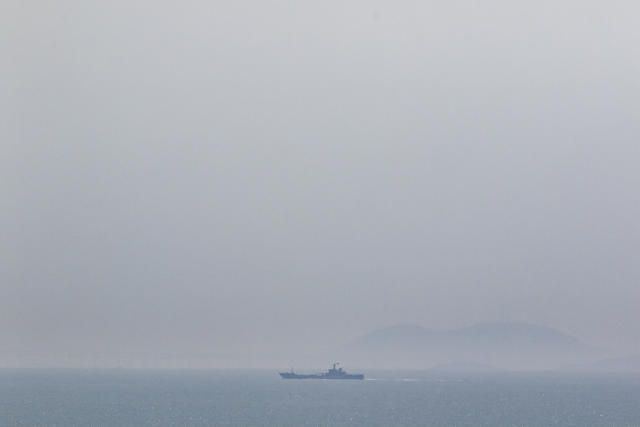
An austere greeting on the airport tarmac in Beijing sans a red carpet. A stone-faced handshake from China’s top foreign policy official. A seat looking up at the Chinese leader, Xi Jinping, perched at the head of a long table.
To international audiences, the optics of Secretary of State Antony Blinken’s two-day visit to Beijing barely raised any eyebrows. Foreign ministers are rarely, if ever, met with much fanfare at the airport. And an audience with a head of state alone is a sign of great importance and respect.
But to nationalist-leaning audiences in China, especially on social media, the scenes tell a different story. To them, Blinken arrived only after months of pleading for an invitation. And during his visit, he was schooled on respecting China’s interests and played supplicant to Xi. Chinese social media users gleefully noted that Blinken arrived on Father’s Day, the implication being — using the parlance of the internet — that Xi was America’s daddy.
The nationalistic commentary in China around Blinken’s visit underscored a point that Xi made in his meeting with the top U.S. diplomat Monday: “Major-country competition does not represent the trend of the times.” The translation: Surrounding China with security partners and cutting off its access to advanced technology is not healthy competition, but an invitation for conflict.
Xi’s rejection of the framing of U.S.-China relations by the two most recent U.S. presidents raises doubts about whether the world’s two superpowers can reach a strategic accommodation with each other in the coming years.
“They apparently don’t buy into this framework at all,” said Bonnie Glaser, managing director of the Indo-Pacific program at the German Marshall Fund of the United States.
“That begs the question: Is it then possible to stabilize relations?”
It is unclear to what extent the state played a role in promoting the triumphant narrative online, though Chinese censors generally have broad controls to sway public opinion. Even in China’s more staid state-controlled news outlets, which mostly carried the government’s summaries of the meetings, coverage of the visit emphasized Beijing’s view that Blinken was visiting to reassure the Chinese government and listen to its concerns.
Casting China as a strong and responsible power willing to lower tensions with a belligerent United States may help mask the less politically palatable reasons Beijing wants to reengage with Washington, analysts say. Chief among them is the need to stabilize the Chinese economy, which has been struggling to maintain a recovery after coming out of three years of punishing pandemic restrictions.
“The optics of Xi Jinping lecturing to a subordinate American secretary of state from the head of a boardroom table plays well to a domestic audience that China is a global power that not only demands, but receives, respect from other great powers,” said Drew Thompson, a visiting senior research fellow at the Lee Kuan Yew School of Public Policy in Singapore.
He noted that Blinken’s two immediate predecessors — Mike Pompeo and Rex Tillerson — were seated next to Xi in armchairs when they met. (Xi sat with Pompeo in Beijing in June 2018, but did not meet the U.S. secretary when he returned that October.) Others pointed out that Bill Gates was invited to sit down next to a smiling Xi in an ornate wooden chair last week.
U.S. officials say Blinken’s trip was necessary because maintaining regular high-level diplomacy between the world’s two superpower rivals — and its two largest economies and militaries — is critical to avoiding open conflict. Not only do the two governments seek stability in the relationship, but so do their allies and other nations. And diplomacy allows the two sides to make their views clear in private and public talks.
“If you want to stand up for American values on human rights and if you want to free detained Americans here or enlist China’s help on the fentanyl crisis, you can’t do it from the sidelines,” R. Nicholas Burns, the U.S. ambassador in Beijing, said in an interview Tuesday. “You need to talk to them and press them as Secretary Blinken did on his visit here. You don’t give anything away by talking.”
“The Chinese received the secretary with a great deal of dignity,” added Burns, who was in all of Blinken’s meetings. “President Xi Jinping was very courteous in the meeting.”
Chinese officials, keen to turn the focus to commerce as an anchor in U.S.-China relations, had pushed for Treasury Secretary Janet Yellen and Commerce Secretary Gina Raimondo to visit first, but U.S. officials insisted that Blinken had to precede them. Now those other two U.S. Cabinet officials are expected to travel to Beijing this summer, as is John Kerry, the climate envoy.
Analysts say China hopes the talks can help bolster business confidence when many of the traditional levers of Chinese economic growth, such as real estate, are facing dramatic challenges.
Moreover, China wants to underscore to the Biden administration its opposition to trade restrictions that choke Chinese access to important technologies, such as advanced semiconductor chips.
“Xi’s main motivation in entertaining the Americans is because the Chinese economy is in a really bad state,” said Willy Lam, an analyst of Chinese politics who is a senior fellow at Jamestown Foundation, a research institute in Washington. “Exports are down noticeably, and more U.S. and Western firms are moving production bases away from China.”
In hosting Blinken, China also sought to lay the groundwork for Xi to visit the United States in November for the Asia-Pacific Economic Cooperation summit — a trip that could lead to a one-on-one meeting with President Joe Biden, the kind of visit that would help burnish Xi’s image as a global statesman.
Beijing may also be moved by a sense of urgency to press the Biden administration for more assurances that it won’t inflame pro-independence sentiment in Taiwan, especially before presidential elections in both the United States and Taiwan next year. In both places, politicians have ramped up rhetoric critical of the Chinese Communist Party during campaign years because they think that helps win votes.
China has been furious over the Biden administration’s growing support for the democratic, self-governed island — including a new trade agreement, more weapons sales and increased exchanges between officials. The Blinken visit gave China an opportunity to signal that it has warned the United States not to provoke Beijing over what its leaders have called the “core of China’s core interests.”
While Blinken’s visit may have helped end the freeze in top-level bilateral diplomacy, it also highlighted the fact that important dialogue between the two nations remains imperiled by China’s attitude over Taiwan and the widening military and economic rivalry.
After House Speaker Nancy Pelosi visited Taiwan in August, Beijing froze formal interactions with Washington on military issues, climate change and narcotics. China has only agreed to restore talks on climate change. U.S. officials went into the meetings in Beijing hoping to get China to reopen direct channels of military-to-military communications, including ones between the U.S. defense secretary, the chair of the Joint Chiefs of Staff and the head of the Indo-Pacific Command and their Chinese counterparts.
Chinese officials meeting with Blinken rejected the request.
c.2023 The New York Times Company
0 Likes
